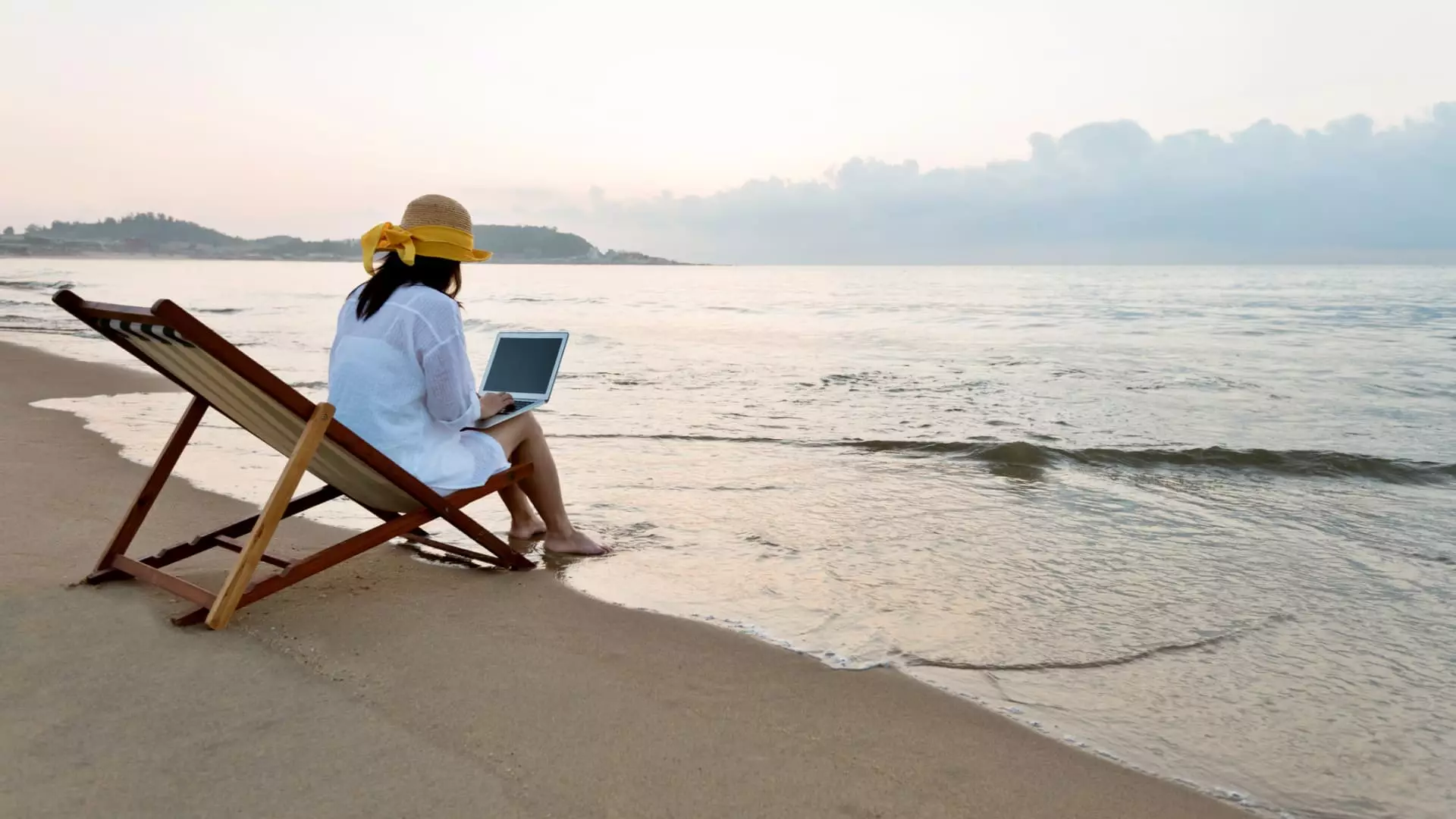As the holiday season approaches, a significant transformation in travel patterns among Americans is becoming evident. With the rise of remote work options, many individuals are redefining what it means to travel during the holiday season. Many are seeking to merge work and leisure, a strategy that not only enhances their travel experience but also allows them to manage work commitments while enjoying time away from home. According to recent surveys, nearly half of employed travelers now identify as “laptop luggers,” indicating a growing trend of work-from-vacation flexibility. This reflects a substantial increase from previous years, highlighting how the pandemic has reshaped workers’ expectations and behaviors regarding travel.
Deloitte’s survey indicates that the number of those who plan to engage in work-related activities while away has surged to 49%, compared to just 34% a year ago. This flexibility provides employees with the opportunity to extend their trips, allowing for longer getaways without sacrificing work responsibilities. Across various demographics, this trend is particularly pronounced among younger generations and higher-income individuals, suggesting that financial stability and adaptability are crucial factors in enabling this lifestyle.
The demographic profiles of those embracing remote work options during the holidays reveal intriguing insights. Generation Z, comprising individuals born between 1997 and 2012, leads the way with 58% of this age group planning to juggle work and travel. Meanwhile, high-income earners are also keenly participating in this trend, with 52% expressing similar intentions. This revelation indicates that both young professionals eager for travel experiences and established earners valuing their leisure time see significant benefits in maintaining a work-life balance while on the go.
Moreover, millennials, defined as individuals born between 1980 and 1996, demonstrate a notable willingness to invest in their holiday adventures, with an average planned expenditure of $3,927 per trip. Their propensity to undertake approximately 2.6 trips during the season underscores a broader consumer confidence among the generation. In stark contrast, the attitudes toward holiday expenses differ sharply among income brackets, with higher-income travelers showing less price sensitivity, thus influencing holiday spending trends significantly.
Despite these financial disparities, many travelers are savvy enough to find ways to save, with a striking 83% of respondents in another survey actively seeking cost-cutting measures this holiday season. Driving instead of flying is one popular option, allowing travelers to avoid soaring airfares while still enjoying the ride. Additionally, a considerable portion of travelers are re-evaluating their overall budgets, with many opting to cut back on other expenses, take advantage of discounts, and utilize points for flight or accommodation costs.
A recent report revealed that among various cost-saving strategies, 22% of travelers plan to schedule their trips for off-peak days, allowing them to save on fares and accommodations. Meanwhile, another 21% consider leveraging credit card points or miles to lower their travel costs, illustrating a pivot towards more financially prudent travel choices. The quest for a fulfilling yet affordable holiday experience is pushing travelers toward creative solutions.
As the lines between work and leisure continue to blur, it is imperative for those planning to work remotely while traveling to understand their company’s policies regarding remote work. Adhering to regulations, such as working only from approved locations, is crucial to ensure job security. Consulting with supervisors about remote working arrangements during travel can also alleviate potential stressors, allowing employees to focus on delivering their work efficiently while enjoying their surroundings.
The demand for reliable infrastructure—such as internet access and power sources—is also paramount for successful work-from-vacation arrangements. As Julia Pollak, chief economist at ZipRecruiter, emphasizes, “choosing locations with dependable connectivity is essential for those committed to fulfilling work responsibilities.” More than ever, travelers must ensure that their chosen destinations provide a conducive environment for their work needs.
Looking ahead, the future of holiday travel reflects an evolving landscape influenced heavily by the experiences sought after post-pandemic. The long-awaited return to travel has sparked a surge in spending as individuals seek to embrace life beyond their homes. Experts indicate that the combination of remote work flexibility and increased financial investments in experiences marks a new era of travel that celebrates both escape and responsibility.
In essence, the indomitable spirit of the American traveler during this holiday season showcases an innovative approach to balancing work and leisure. As people increasingly adapt their travel behaviors to thrive in this new normal, one thing remains clear: the commitment to experiencing the world, even while tethered to work obligations, is a trend here to stay.

Leave a Reply